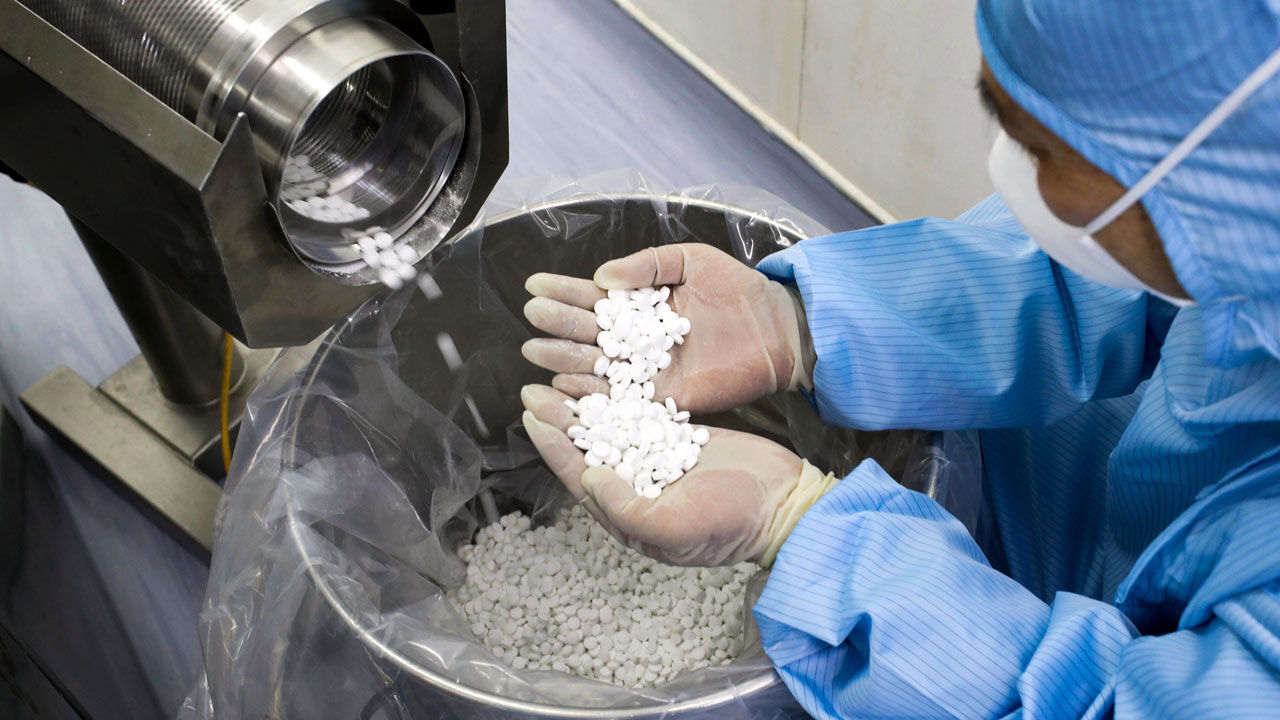FEATURECHINA VIA AP IMAGES
A Chinese pharmaceutical company employee checks the creation of chloroquine phosphate, an old malaria treatment being touted for COVID-19; the company resumed its production last month after a 15-year break.
When President Donald Trump recently touted the common malaria treatments hydroxychloroquine and chloroquine as potential remedies for coronavirus disease 2019 (COVID-19), he ignited unprecedented demand for the drugs—and set scientists’ teeth on edge. Although the World Health Organization (WHO) agrees the compounds are worth testing more fully on the pandemic coronavirus, few drug or infectious disease experts—not even the president’s own advisers—share his optimism that the drugs could become “one of the biggest game changers in the history of medicine,”as he tweeted. And many are critical of the small French clinical study of just 42 patients that seems to have touched off most of the excitement.
“The president was talking about hope,” Anthony Fauci, director of National Institute of Allergy and Infectious Diseases, said diplomatically at one of the White House briefings where Trump praised the drugs’potential.
Others are less diplomatic. Darren Dahly, a co-author of one of several critiques of the initial study and a principal statistician at the University College Cork School of Public Health, said it would be “egregious” to recommend treatments for millions of people based on such a small trial, regardless of its quality. “This is insane!” tweeted Gaetan Burgio, an Australian National University expert on drug resistance, noting what he sees as lapses in the 6-day trial, including inconsistent testing of virus levels in the patients.
To Dahly and others, only much larger, better studies such as one WHO has just started can show whether any optimism about the compounds is warranted. “The best way to know whether a medication for COVID-19 is effective is through a high-quality clinical trial,” says Joshua Sharfstein, a vice dean at Johns Hopkins University’s Bloomberg School of Public Health and a former principal deputy Food and Drug Administration commissioner. “Efforts to widely distribute unproven treatments are misguided at best and dangerous at worst.”
Such cautions were buried under an avalanche of demand for hydroxychloroquine, also sold under the brand name Plaquenil, and chloroquine, as doctors rushed to prescribe one or the other for confirmed or possible COVID-19 infections. Among the immediate consequences:

